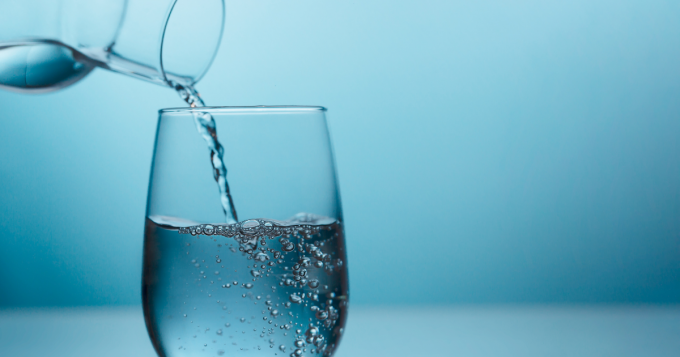Avoid Dehydration After Bariatric Surgery
Staying hydrated is one of the most important parts of recovery after bariatric surgery. Your smaller stomach means you can only drink small amounts at a time, making it harder to stay hydrated.
It’s important to avoid dehydration because it is a leading cause of nutrition-related hospital readmissions in the weeks following surgery.
By learning how to drink enough fluids throughout the day, you can avoid these complications and support your recovery.
Why Hydration Is Essential
The American Society for Metabolic and Bariatric Surgery (ASMBS) emphasizes that staying hydrated helps prevent complications, supports digestion, and ensures a smoother recovery process.
Hydration also plays a role in:
- Electrolyte Imbalances: Vital for nerve and muscle function, electrolytes are depleted with insufficient hydration.1
- Kidney Stress: Chronic dehydration can lead to kidney stones or other renal issues.2
- Digestive Challenges: Fluids are critical for moving food through your digestive tract and preventing constipation.
- Fatigue and Dizziness: Lack of proper hydration can cause low energy and difficulty concentrating.
How Much Water Do You Need After Bariatric Surgery?
The general guideline for bariatric patients is to aim for 64 ounces (approximately 8 cups) of fluids daily. This may be challenging due to your reduced stomach capacity, but these strategies can help:
- Use a Timer to Sip Regularly: Set a timer on Baritastic to remind yourself to take small sips of water every 10-15 minutes throughout the day.
- Try Hydration Packs: Use electrolyte packets to mix with water for added flavor and balance.
- Start the Day Hydrated: Drink 8 ounces of water first thing in the morning before eating or drinking anything else. If could water causes discomfort, try warm water to start the day.
- Invest in a Fluid Tracker Bottle: Use a water bottle with time markers to monitor your intake visually.
- Alternate Fluids with Tolerated Foods: Incorporate hydrating foods like watermelon or broth-based soups alongside clear liquids.
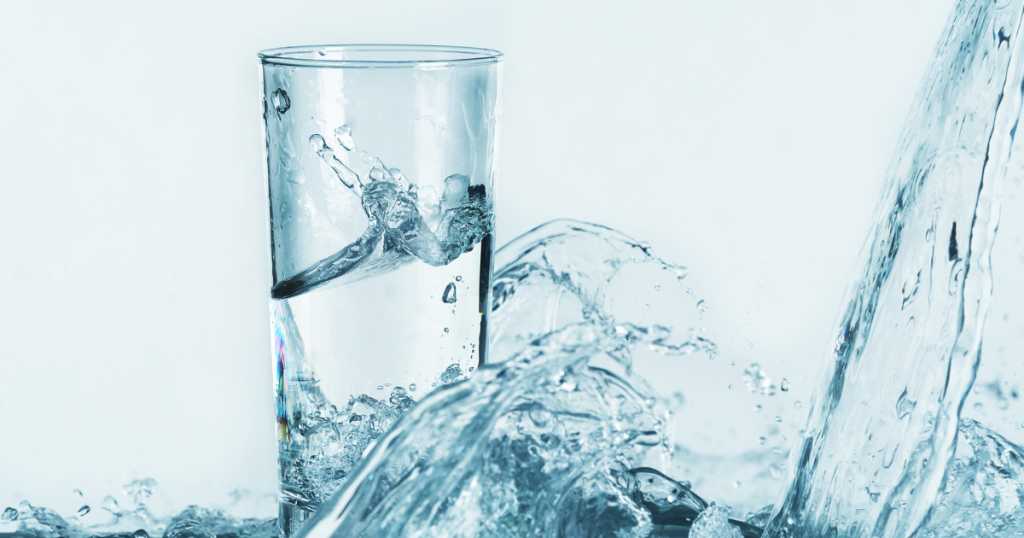
Hydrating Foods to Include
Pairing water-rich foods with protein is a simple and effective way to support hydration and meet nutritional needs after surgery. Hydrating produce combined with protein-rich options can help with food tolerance, especially when dense proteins are harder to consume.
Here are some bariatric-friendly combinations:
- Grilled Chicken with Peeled Cucumber Slices: A protein-rich meal with a hydrating crunch.
- Egg Salad on Romaine Leaves: Eggs provide protein, while romaine is nearly 96% water.
- Tuna Salad with Watermelon Cubes: Tuna offers lean protein, and watermelon provides ample hydration.
- Low-Sodium Broth with Soft Tofu: A warm option that hydrates and provides protein.
- Greek Yogurt with Fresh Berries: A refreshing snack that hydrates and gives you more protein.
Additional High Fluid Content Foods
- Cucumber (96% water)
- Watermelon (92% water)
- Zucchini (94% water)
- Tomatoes (95% water)
- Bell Peppers (92% water)
- Strawberries (91% water)
- Spinach (91% water)
- Cauliflower (92% water)
- Oranges (87% water)
These foods not only help you stay hydrated but also provide essential vitamins and minerals that support recovery. Incorporate them into your meals and snacks to complement your fluid intake.
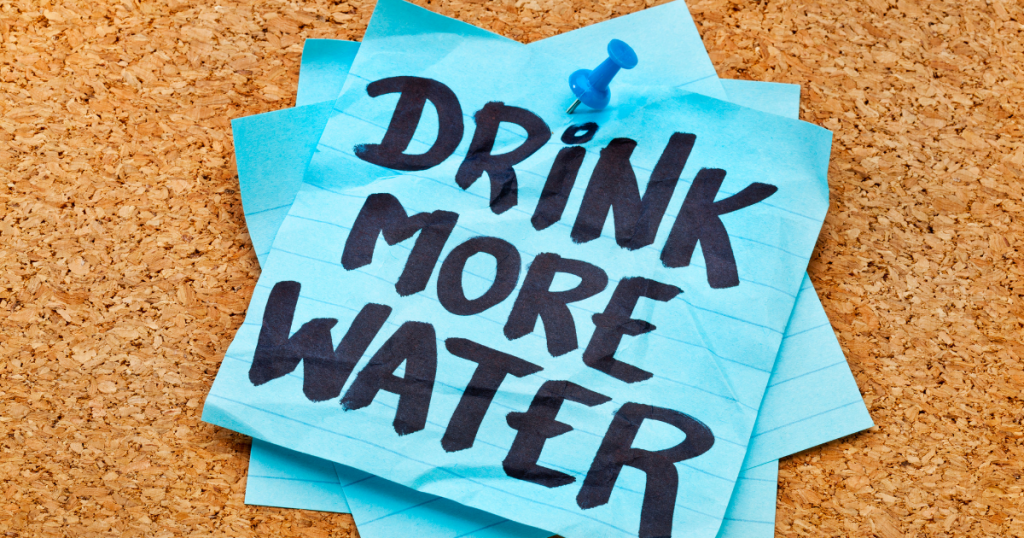
Why Dehydration Happens Post-Surgery
Approximately 20-25% of bariatric patients are referred to the emergency department (ED) due to dehydration after surgery, accounting for nearly half of all ED visits.3
Many of these cases are preventable with proper fluid intake and management of symptoms like nausea and vomiting.
Dehydration is especially common in the first few weeks after surgery due to:
- Reduced Stomach Capacity: Your smaller stomach can only hold limited amounts of liquid at a time.
- Rapid Weight Loss: Glycogen depletion during weight loss releases water, increasing your hydration needs.
- Nausea or Vomiting: Common post-surgery symptoms that make drinking fluids more difficult.
Signs of Dehydration to Watch For
- Dark urine or reduced urine output
- Dry mouth and skin
- Dizziness or lightheadedness
- Fatigue or confusion
If you experience severe symptoms like rapid heartbeat or an inability to keep fluids down, contact your healthcare provider immediately.
Simple Recipes for Hydration After Bariatric Surgery
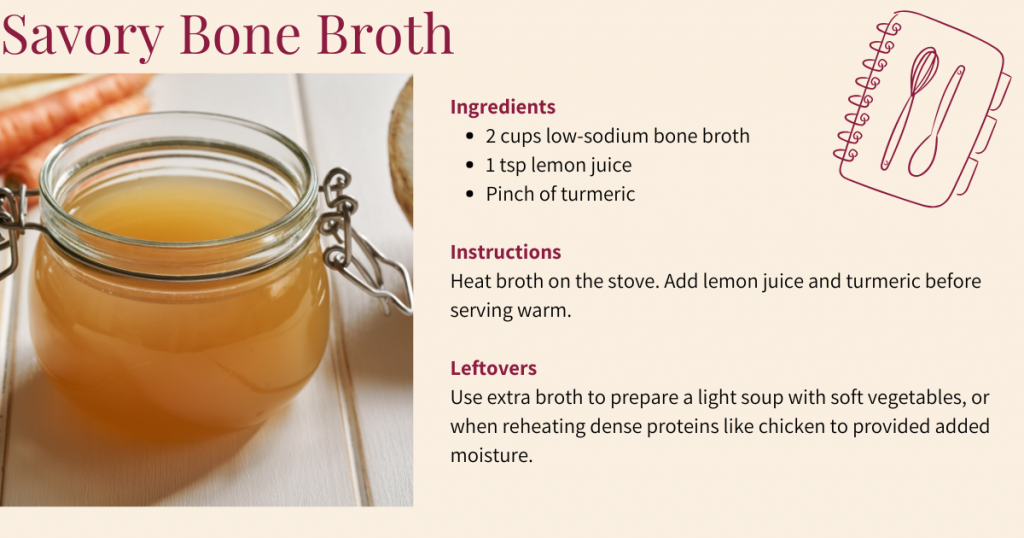
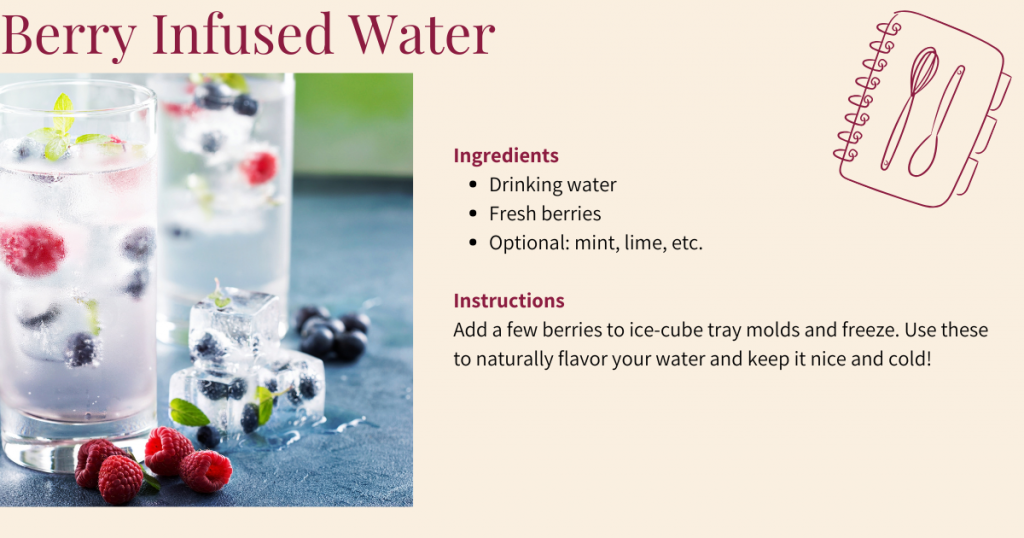
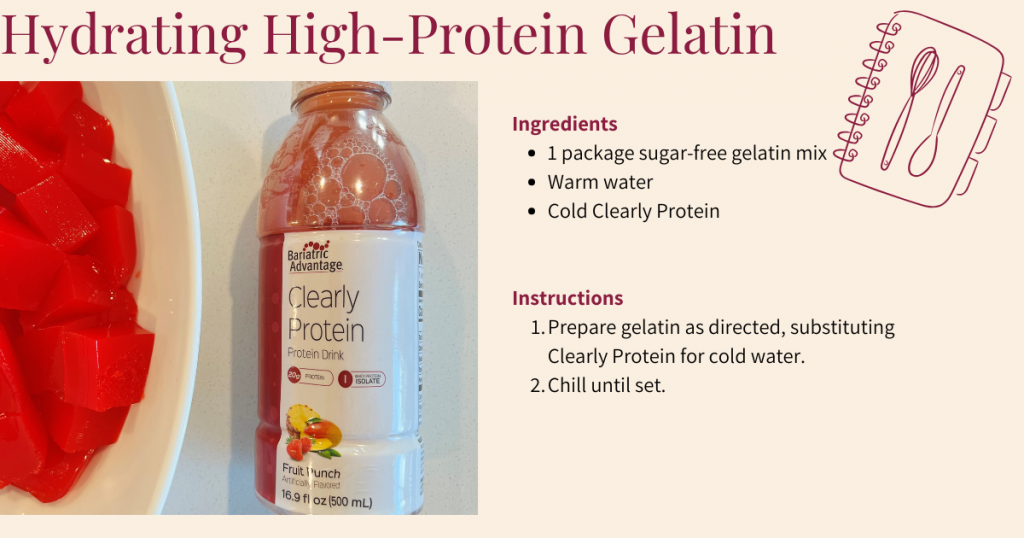
Long-Term Hydration Habits
As your recovery progresses, staying hydrated remains crucial. To maintain long-term success:
- Gradually increase your fluid intake as your stomach adjusts.
- Develop consistent hydration habits by keeping fluids accessible at all times.
- Check with your healthcare provider regularly to ensure you’re meeting your hydration needs.
Stay ahead of dehydration by following these practical tips. Use tools like the Baritastic app to track your progress and consult your healthcare team for personalized recommendations.
Proper hydration is essential not just for recovery but for sustaining your overall health after bariatric surgery.
This content is not intended as a substitute for professional medical advice, diagnosis, or treatment. Individuals should always consult with their healthcare professional for advice on medical issues.
References:
- Livingston E.H Dehydration and Post-Bariatric Surgery Outcomes. Journal of Obesity and Bariatric Surgery.2022:10(4);123-131.
- National Kidney Foundation (2024). Healthy Hydration and Your Kidneys. National Kidney Foundation.
- Williams J et al. Reducing Emergency Department Referrals for Dehydration Following Bariatric Surgery. Journal of Bariatric Patient Care. 2022:15(3);45-52.
- American Society for Metabolic and Bariatric Surgery. Life After Bariatric Surgery.ASMBS Patient Learning Center.
